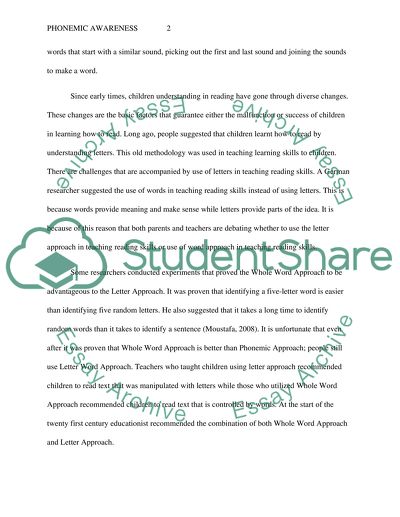Cite this document
(“Phonemic Awareness Essay Example | Topics and Well Written Essays - 1000 words”, n.d.)
Retrieved from https://studentshare.org/education/1433164-phonemic-awareness
Retrieved from https://studentshare.org/education/1433164-phonemic-awareness
(Phonemic Awareness Essay Example | Topics and Well Written Essays - 1000 Words)
https://studentshare.org/education/1433164-phonemic-awareness.
https://studentshare.org/education/1433164-phonemic-awareness.
“Phonemic Awareness Essay Example | Topics and Well Written Essays - 1000 Words”, n.d. https://studentshare.org/education/1433164-phonemic-awareness.


